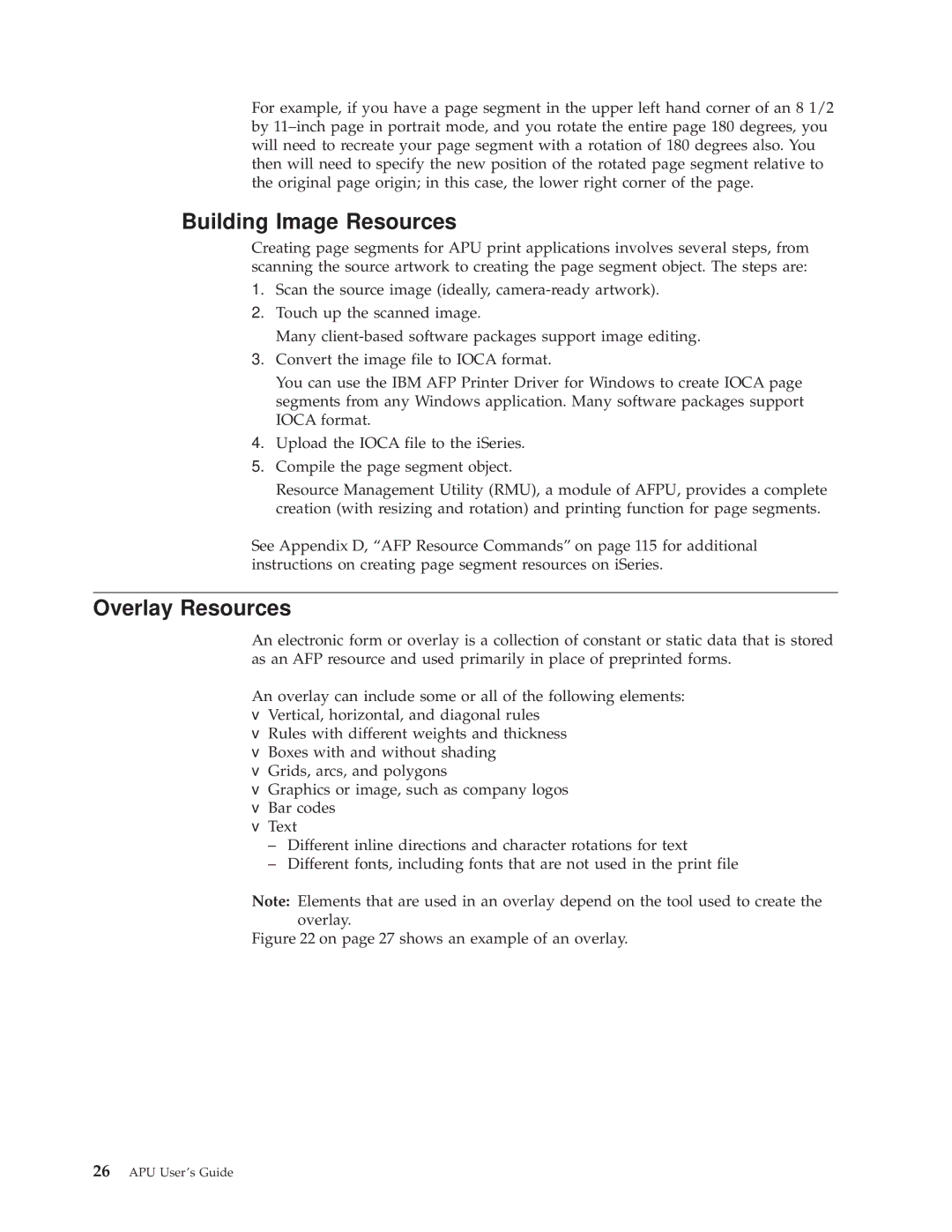For example, if you have a page segment in the upper left hand corner of an 8 1/2 by 11±inch page in portrait mode, and you rotate the entire page 180 degrees, you will need to recreate your page segment with a rotation of 180 degrees also. You then will need to specify the new position of the rotated page segment relative to the original page origin; in this case, the lower right corner of the page.
Building Image Resources
Creating page segments for APU print applications involves several steps, from scanning the source artwork to creating the page segment object. The steps are:
1.Scan the source image (ideally,
2.Touch up the scanned image.
Many
3.Convert the image file to IOCA format.
You can use the IBM AFP Printer Driver for Windows to create IOCA page segments from any Windows application. Many software packages support IOCA format.
4.Upload the IOCA file to the iSeries.
5.Compile the page segment object.
Resource Management Utility (RMU), a module of AFPU, provides a complete creation (with resizing and rotation) and printing function for page segments.
See Appendix D, ªAFP Resource Commandsº on page 115 for additional instructions on creating page segment resources on iSeries.
Overlay Resources
An electronic form or overlay is a collection of constant or static data that is stored as an AFP resource and used primarily in place of preprinted forms.
An overlay can include some or all of the following elements:
vVertical, horizontal, and diagonal rules
vRules with different weights and thickness
vBoxes with and without shading
vGrids, arcs, and polygons
vGraphics or image, such as company logos
vBar codes
vText
±Different inline directions and character rotations for text
±Different fonts, including fonts that are not used in the print file
Note: Elements that are used in an overlay depend on the tool used to create the overlay.
